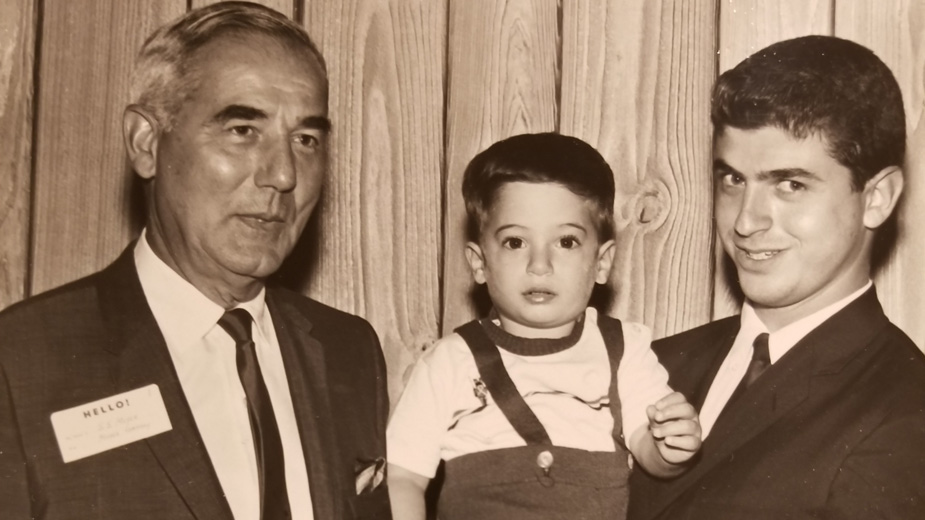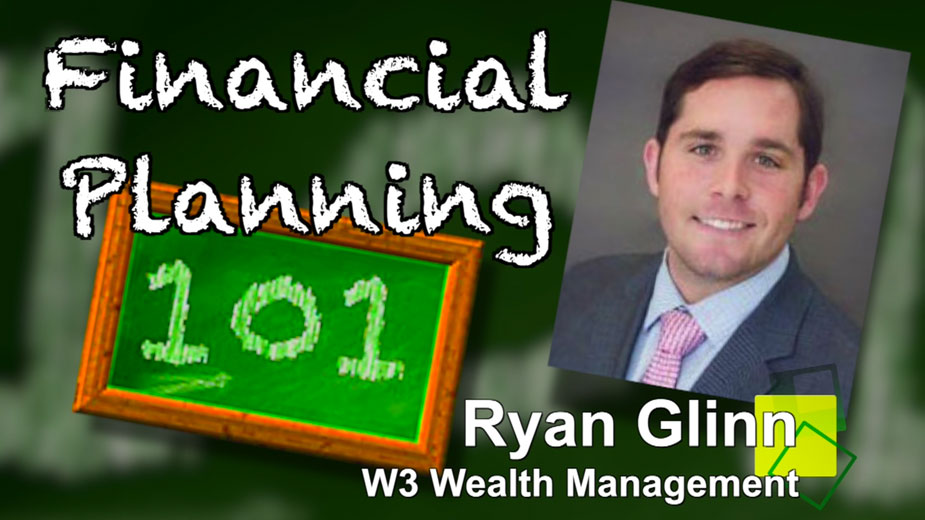Today’s Economy Echoes Familiar Struggles
A popular debate in economic news is the effect of automation and outsourcing on domestic jobs, and which is the biggest contributor to job loss. Opinions vary depending on who you ask.
The Business Journal sat down with Andrew Moyer, a certified financial planner and principal at W3 Wealth Management LLC in Warren, to get his perspective on the economic concerns of Americans and his take on what the future workforce may look like.
What are your thoughts on the current economy? Any concerns?
I feel like worry may be a natural state for many.
I read numerous stories focusing on economic fears, countless articles about robots replacing human workers and how artificial intelligence could enable those robots to become our taskmasters.
And I read still more stories on failing pension funds, student debt and underfunded entitlement programs, and I can’t forget the news on trade wars and skilled labor shortages.
While I agree these are real problems and logically create fear, finding solutions to these problems and others is not an option.
For a different perspective on today’s economic struggles, I reread an essay from the Great Depression era, written by my grandfather, Sidney S. Moyer, in January 1933. At the time, he operated Moyer Pants manufacturing in downtown Youngstown with his brother, Henry, and father, Morris.
Here is what my grandfather wrote:
The argument advanced today is that the machines not only eliminate jobs but produce more than anyone can use. If you were to survey the world, we would very quickly realize that there are millions of things, goods and services that are required to be filled at this very moment. And with the satisfaction of every need, a new one is born.
Capitalistic society is the only type of society which I believe guarantees to everyone the just returns for their individual effort. I do not believe any other sort of social organization can ever be successful until such a time when material reward will not be necessary to live as we choose. Capitalistic society is based on the premise that a profit is not only fair, but it is necessary.
It is, however, both the strength and the weakness of the system. No amount of governmental regulation will ever satisfactorily control profit. It rests entirely with the leaders of industry themselves, whether we are to go on with the present trend of paternalistic government, or whether we are to go back to the principle of private property. They must set the house in order, and what we need to do this is nothing but a civic-minded, social-minded leadership in high places of industry.
Unless this principle can be seen, we will wake up and find that our own greed has destroyed the very thing we are interested.
What in your grandfather’s essay resonates most with you?
He believed that human nature was best suited for capitalistic society because our needs and desires seem to be endless. I agree with him. I believe that for the foreseeable future, we humans will be driven by wants and needs, many of which we have not even begun to imagine.
He seems to allude to the importance of “civic-minded, social-minded leadership” over governmental regulation. What do you make of that?
At the time of his writing, Franklin Delano Roosevelt was just elected president in a landslide election over Herbert Hoover. FDR campaigned on the New Deal, so I think it not uncommon amongst capitalists in 1933 to fear bigger government and prefer to self-regulate their own excesses.
With that in mind, his writings remind me that the debates we have in 2018 are not very different. Worries of the growth of government, greed of corporations and fear of technology are alive and well.
How are things different today?
Jobs don’t disappear because greedy capitalists replace people with robots. Businesses turn to robots because consumers want lower prices than can be achieved with human workers. Robots are just a means to that end.
I realize the economy isn’t working like we think it should during all periods. We are at a place now where people are tired of asking questions and getting no good answers.
I don’t have all the answers. I suspect no one person does. But the answers are out there, and we won’t find them unless we look for them.
Economic history is not just about hard economics, but also about how people experience economic change. How people experience those changes will dramatically affect how they perceive the nature of progress.
The more we can do to ensure that this time it is different for those most at risk, the more likely society will experience a smoother transition to a more prosperous world – for everyone.
What sort of things can people look forward to in that world?
When I think about the answer to that, what first comes to my mind is that I imagine that question was also posed in the 1930s during my grandfather’s time.
I think of the jobs and technologies that have been created since the Depression: software designers, nurse practitioners, computer security specialists, biomedical engineers, webpage designers, drone pilots, 3D-printing technicians, robot designer, nanotechnology, wind and solar technology engineers and the list goes on.
Will those jobs be enough for future employment?
I can’t know the future – unless someone invents a functional crystal ball. However, I feel we may be surprised by the jobs we have not thought of yet that may help fill the void that technology leaves in the workforce.
Predicting the best jobs for the future requires understanding that all kinds of variables will interact in complex and surprising ways. Many of tomorrow’s jobs will likely result from today’s scientific and technological advances.
But most jobs of the future probably don’t exist yet, and a lot of them haven’t even been imagined. In fact, according to one estimate, many of today’s kindergarten students will eventually have occupations that don’t currently exist.
Some examples might include pharmaceutical artisan, which might be someone who can design personalized doses of a variety of medications possibly using one’s own stem cells. Other examples might be holograph or avatar designer, extinct species revivalist – unlike Jurassic Park, and hopefully on a smaller scale – and landfill worm operator, which sounds crazy, but so did television and mobile phones in the 1930s. We will need to find many different ways to dispose of waste.
Of course, many of today’s occupations will continue to be part of the future, but they’ll undergo changes just like everything else. And many occupations will transform into something entirely new, or disappear altogether.
It’s a lot to think about, let alone visualize. After all, many of us have a natural resistance to change and uncertainty. We might feel a little too safe or comfortable with the status quo.
I realize some of these jobs need advanced education. Investment in education from both public and private sources is essential to helping us ease the transition into the future.
That’s not to say every person needs a doctorate. Many of the jobs vital to the functioning of our society probably take less training and are equally valuable.
Pictured: Andrew Moyer is held by his father, John, as his grandfather, Sidney S. Moyer, looks on.
The opinions expressed in this article are those of author and should not be construed as specific investment advice. All information is believed to be from reliable sources, however, no representation is made to its completeness or accuracy. All economic and performance information is historical and not indicative of future results. Fee-Based Planning offered through W3 Wealth Advisors, LLC – a State Registered Investment Advisor – Third Party Money Management offered through Valmark Advisers, Inc. a SEC Registered Investment Advisor – Securities offered through Valmark Securities, Inc. Member FINRA, SIPC – 130 Springside Drive, Suite 300 Akron, Ohio 44333-2431 * 1-800-765-5201 – W3 Wealth Management, LLC and W3 Wealth Advisors, LLC are separate entities from Valmark Securities, Inc. and Valmark Advisers, Inc.
Copyright 2024 The Business Journal, Youngstown, Ohio.



